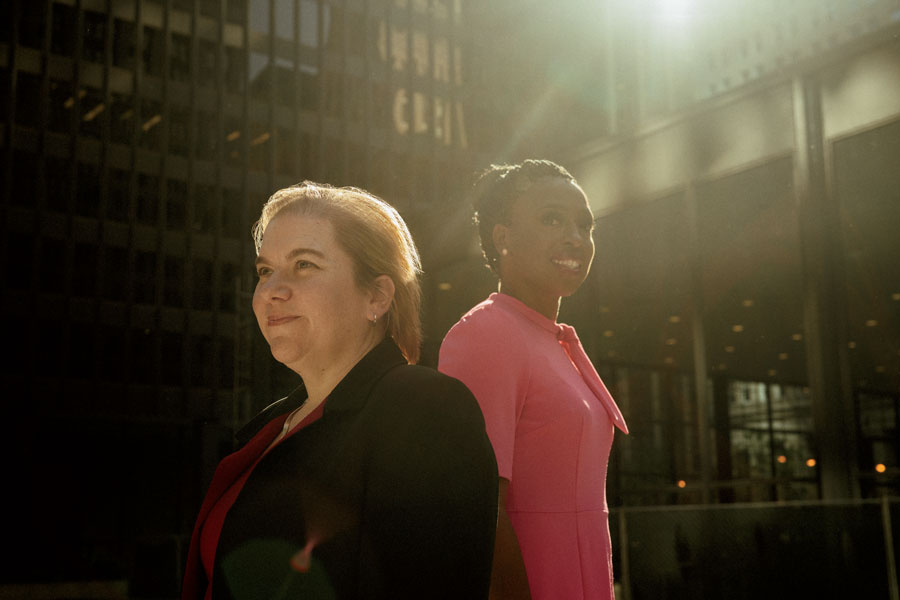There was probably no period of 2020 more chaotic than the second week of March. In a matter of days, COVID-19 went from an abstract threat to a very frightening reality that had already spread further in Chicago than we realized. On March 12, Governor J.B. Pritzker announced a ban on large gatherings. And then Allison Arwady, the commissioner of the Chicago Department of Public Health, stepped up to the podium, validated our bewilderment and fear, and delivered one clear, practical piece of advice she learned while on the ground in Liberia during the 2014 Ebola outbreak: Stop shaking hands. What followed was a rallying cry for the COVID age: “I ask you to be guided by the science. … It’s not a time for panic. It’s a time for planning.”
A refrain throughout this year has been “Who could have predicted this?” But as Arwady told us during her first installment of “The Doc Is In: Ask Dr. Arwady” (her must-see Q&A series on social media), the emergency preparedness teams at both the city and state public health departments had made detailed plans for responding to a pandemic, from stockpiling PPE to handling food shortages, unemployment, and social unrest. And even though Arwady had been on the job for only four days when the plans were put into effect in January, she and Ngozi Ezike, the director of the Illinois Department of Public Health, knew exactly what to do.
Public health workers usually remain in the background, but Arwady and Ezike became nearly as familiar as the mayor and the governor, appearing almost daily at press conferences and briefings and on social media, always ready to answer questions from officials, reporters, and ordinary Chicagoans. It’s an exhausting job with regular 17-hour days; Ezike has compared it to a marathon, with no time for rest or reflection. “It’s hard for people to understand that we can’t know everything about a brand-new virus right off the bat,” she says. “Even though it seems like a lifetime, we haven’t even known this virus for 10 months.”
Their styles are complementary. Arwady is energetic and always able to find something positive to say, even when the news is bad. Ezike has a calm and reassuring presence and has spoken eloquently about the importance of self-care; bilingual in Spanish, she’s able to talk directly to Latino Illinoisans. With their guidance, the state, the city, and individuals all worked together to flatten the curve.
Some communities were in a better position to weather the pandemic than others. As Arwady puts it: “Viruses look for chances to spread. They look for cracks in society.” Both doctors hope that the lessons we’ve all been learning will guide leaders toward making better decisions about how to care for their most vulnerable populations even when there isn’t a pandemic. Arwady, as usual, is optimistic: “I really do feel confident that we are going to come out of COVID a stronger city.”



